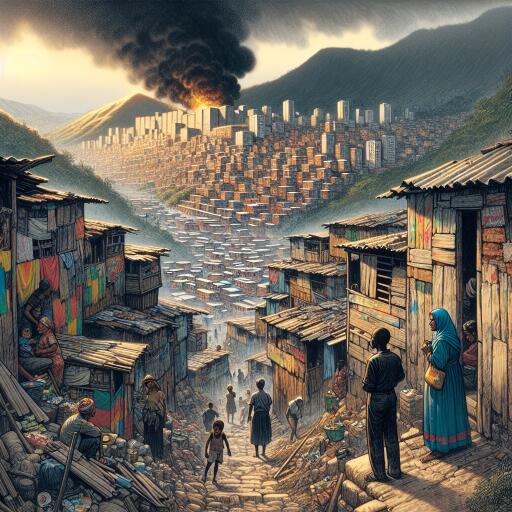
Informal Settlements On The Front Lines Of Wildfire Risk In Bogotá – OpEd
In the shadow of a devastating event, a mother promises her son a better future, a home built from bricks, as they stand before the remnants of their life before – now reduced to ash and debris. This poignant scene unfolded in Ciudad Bolívar, a sprawling informal settlement cradling the edge of Bogotá, Colombia, after a wildfire razed their dwelling to the ground. Miraculously, her children escaped the inferno unscathed. This family, like many in Colombia, scrapes a living through recycling – a testament to their resilience amidst hardship.
Recent wildfires in Bogotá have drawn attention to an alarming trend in Latin America, exacerbated by climate anomalies like El Niño and deepened by climate change. These fires are not singular occurrences but part of a broader, distressing pattern accelerating due to warming ocean waters and resulting environmental impacts. The unfortunate tale of Bogotá is mirrored across the Amazon basin, with countries like Bolivia, Peru, and Brazil also grappling with fire outbreaks and droughts.
Informal settlements, often perched in precarious locations, find themselves on the frontline of wildfire risks. These communities, born out of necessity, burgeon on the city’s outskirts, where migrants fleeing rural conflict or economic desolation seek refuge. Bogotá, a city expanding into the mountains, contains numerous such settlements, with a significant portion of residential constructions categorized as informal. The materials common to these improvised homes, including wood and flammable zinc sheets, alongside substandard electrical installations, heighten the risk of fire significantly.
Despite the official containment of various blazes, the fear lingering in neighborhoods juxtaposed against the Eastern Hills is palpable. A concerned community elder from El Paraíso reflects on the terrifying possibility of losing homes to wildfire, a sentiment shared by many who have witnessed the cityscape transform drastically over years. El Paraíso, a district once characterized by sparse habitation, now thrums with life, albeit under constant threat from natural calamities.
As the specter of wildfires looms, residents mobilize, exemplifying community solidarity. Volunteers, equipped with basic firefighting tools, combat the advancing flames, supported by neighbors providing sustenance and encouragement – a collective endeavor underlining the resilience ingrained in these communities. This spirit of cooperation extends beyond immediate fire suppression efforts, with even younger generations stepping forward, driven by a fervent desire to guard their heritage and safeguard their future.
The introduction of non-native vegetation like eucalyptus and pine, once seen as a boon for reforestation, now serves as a catalyst for fire propagation. The aftermath of the fires has sparked discussions on the importance of indigenous flora in mitigating fire risk, pointing towards a need for reevaluation of reforestation practices.
Moreover, the issue transcends national boundaries, with the city of Valparaíso in Chile reporting devastating wildfires that similarly afflict informal settlements first, underscoring a grim reality underscored by the Intergovernmental Panel on Climate Change (IPCC). These communities stand on the frontline, exceptionally vulnerable to the dire consequences of climate change, including fire, floods, and extreme temperatures.
Emergent stories of solidarity, as seen in Bogotá, hint at possible pathways forward, emphasizing local engagement, education, and the adoption of indigenous ecological knowledge as key strategies in combating and mitigating the impact of wildfires. However, without a concerted strategy aimed specifically at enhancing the resilience of informal and vulnerable communities, the cycle of destruction and rebuilding will persist, eroding the social fabric and environmental integrity of regions like Bogotá.
In the face of impending environmental challenges, the narrative of community resilience and the call for inclusive, proactive policy-making underscore the urgency of placing human and ecological well-being at the heart of climate response strategies. The enduring hope of communities, epitomized by a mother’s promise to her son, serves as a compelling call to action – for a future where homes and lives are fortified against the caprices of an ever-changing climate.





Leave a Reply